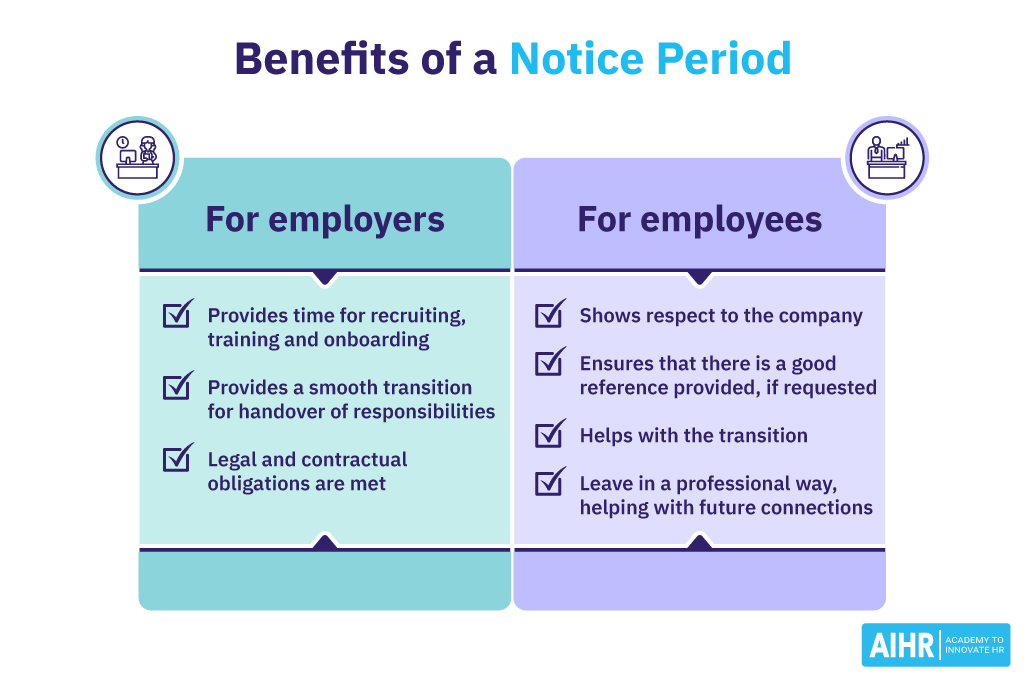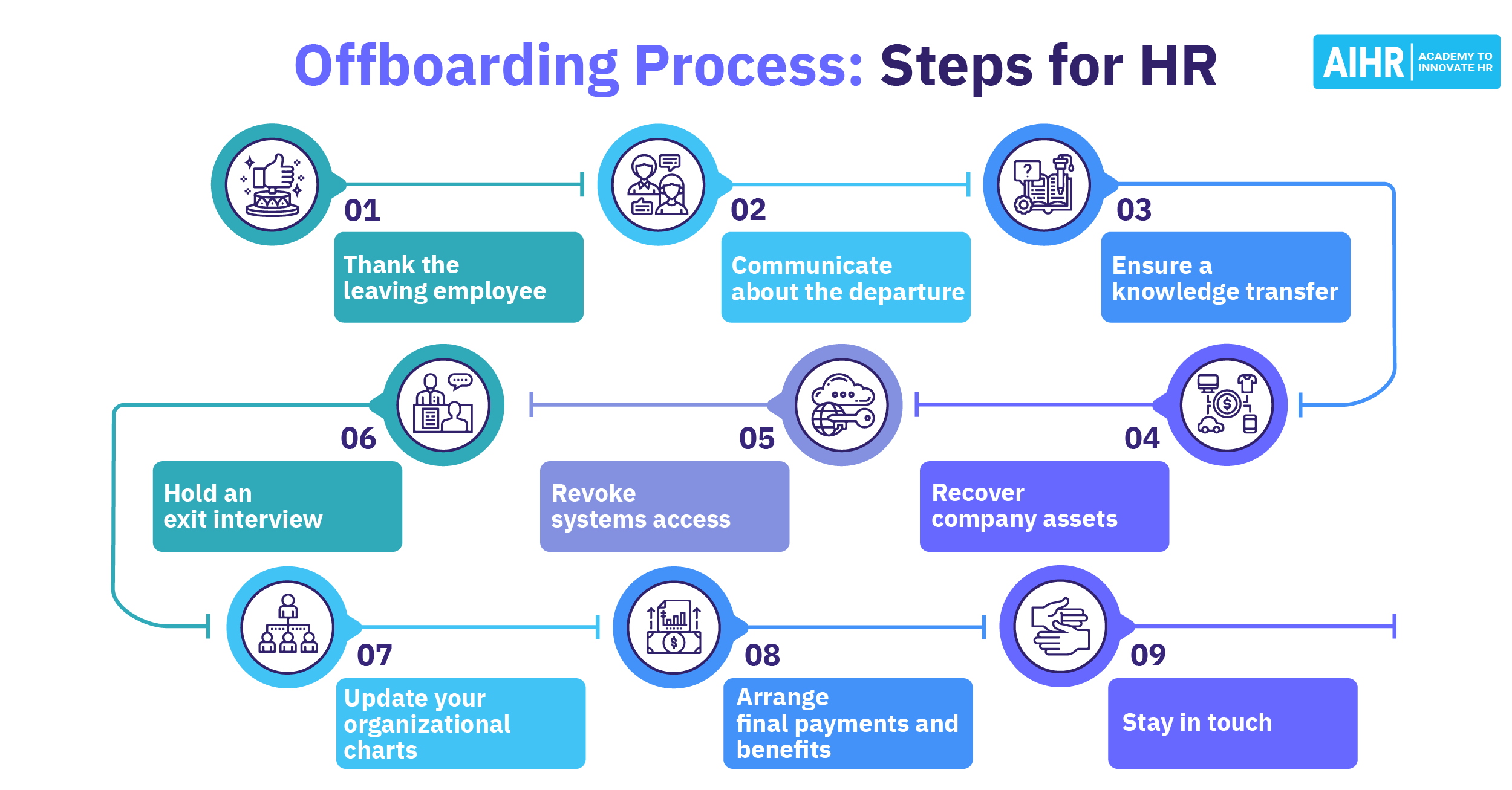Notice period
What is a notice period?
A notice period refers to the period an employee or employer must give before terminating an employment contract. This period allows for adequate preparation for the employee’s departure or replacement.
The importance of a notice period
The notice period is important because it allows the employee to identify when they are leaving so that an employer has time to prepare for their departure.
The notice period meaning is usually included in an employee contract so that employees are made aware of their obligations. And while a notice period is often expected or required, not all employees will follow the requirements.
When proper notice is given, it makes it possible for an employer to plan. Once notice is given, an employer can:
- Determine how/when projects will be finished
- Establish a replacement
- Ensure training/crossover is done.
Ideally, employees that leave on good terms are used to provide training to their replacement. It makes for a smoother transition.

Benefits of a notice period for employers and employees
There are benefits of a notice period for both employers and employees. It’s why an employee handbook should cover the expectations of notice (and a specific timeframe).
When an employee provides a notice period it helps employers to:
- Plan for project completion
- Ensure a smooth transfer of responsibilities
- Provides ample time for hiring, onboarding, and training
- Fulfillment of legal and contractual obligations.
Employee benefits of giving notice:
- Shows professionalism and respect toward the company
- Increases chances of positive references
- Facilitates a smoother transition for the team and projects
- Maintains professional connections for the future.
Duration of notice period
The length of a notice period can vary due to factors like employment contracts, industry norms, and legal requirements. While the average notice period is often two weeks in the United States, many states follow “at-will” employment, meaning no notice is mandatory. Employers can choose to include notice periods in contracts to avoid surprises.
Certain companies adhere to guidelines like giving one week’s notice for employees with less than a year of tenure and one month’s notice for those with more than a year. While these can be written into the contract, no US employment laws require an employee to provide a specific notice.
Factors that influence the length of a notice period include:
- Terms outlined in the employment contract
- Industry practices
- The time needed to train a replacement.
The Department of Labor provides protection to employees but has no stipulations in place regarding notice periods. It is up to the employer to provide notice periods within the contract. Providing less notice than what is stipulated in a contract can lead to breach of contract lawsuits, salary penalties, and more – though all of this should be included in the confines of the employment contract.
How HR should handle a notice period
HR departments should have a clear policy for managing notice periods. When an employee resigns, HR should:
- Document the resignation
- Ensure the employee fulfills their contractual notice requirement
- Initiate recruiting and hiring processes as needed
- Manage offboarding tasks
- Schedule and conduct exit interviews
HR tip
In the US, there’s no overarching Employment Rights Act like in the UK. However, various federal and state laws may apply to notice periods, so it’s important to adhere to relevant regulations.
Notice periods play a vital role in ensuring smooth transitions for both employers and employees when employment relationships end. Clearly outlining notice periods in contracts and employee handbooks can help prevent misunderstandings.







